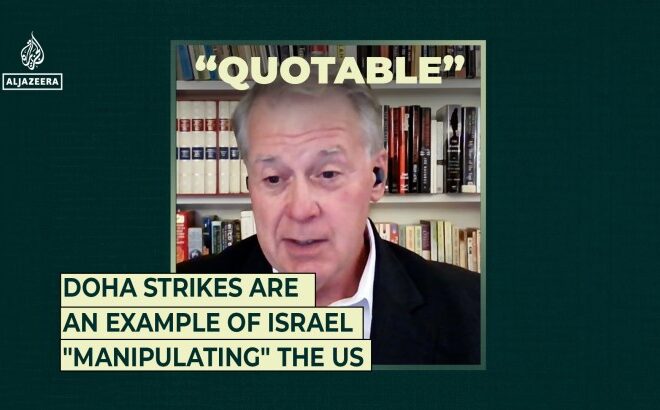For first time in decades, U.S. says Colombia is falling short in drug war

U.S. Decertifies Colombia in Drug War for the First Time in Decades
In a significant shift in diplomatic relations, the United States has decertified Colombia as a partner in drug control efforts, marking the first time this action has been taken since 1997. This decision, announced by President Donald Trump in a memorandum to Congress, highlights what the administration perceives as Colombia’s failure to meet its drug control obligations.
Background of the Decertification
The decertification comes amid rising concerns about Colombia’s role as the world’s largest producer of cocaine. According to the United Nations Office on Drugs and Crime’s (UNODC) most recent annual report, published in June 2023, Colombia’s estimated cocaine yield surged by 50% from 2022 to 2023. This increase has raised alarms in Washington, where officials fear that soaring cocaine production could lead to a resurgence of drug-related violence and instability in the region.
Despite the decertification, the Trump administration opted not to impose sanctions on Colombia, instead granting a “national interest waiver” that allows for the continuation of U.S. aid and security cooperation. This decision alleviates some anxiety within Colombia, where there had been fears of sweeping sanctions that could cripple the country’s economy and security forces.
Political Tensions Between the U.S. and Colombia
The announcement of decertification has been interpreted as a strong message from Washington regarding its dissatisfaction with Colombia’s current coca crop policies. Elizabeth Dickinson, a senior analyst at the International Crisis Group, remarked that this action reflects growing tensions between the U.S. and Bogotá. The political relationship has been strained, particularly under the leadership of Colombian President Gustavo Petro, a former leftist rebel who has been at odds with the Trump administration since a dispute over deportation flights earlier this year.
Petro’s approach to combating drug trafficking has involved crop substitution programs and negotiations with criminal organizations. However, these efforts have met with limited success. In response to the decertification, Trump criticized Petro’s leadership, claiming that under his administration, coca cultivation and cocaine production have reached “unprecedented levels.”
Petro countered Trump’s assertions by highlighting the role of demand in the U.S. and Europe, arguing that reducing coca leaf cultivation requires addressing the underlying demand rather than relying on aerial herbicide spraying. He expressed his views on social media platform X, emphasizing that a more comprehensive approach is necessary to tackle the drug problem.
The Collapse of Peace Negotiations
In addition to the drug war, the political landscape in Colombia has been further complicated by the collapse of peace negotiations with various armed groups. Trump criticized Petro’s flagship policy of negotiating peace deals, suggesting that these initiatives had been exploited by criminal organizations. As a result, Colombia has witnessed an escalation in violence, with a notable increase in attacks against police and military personnel.
In light of these challenges, Colombian politicians and security officials have traveled to Washington to lobby against potential cuts to military aid. They have warned that reducing support from the U.S. could jeopardize ongoing efforts to combat armed groups and maintain stability in the country. Dickinson noted that the Colombian government has been actively trying to convey its security interests to U.S. officials, emphasizing the importance of continued cooperation.
Historical Context of U.S.-Colombia Relations
The U.S. has been a key ally of Colombia for more than 25 years, providing approximately $14.2 billion in aid since 2000. A significant portion of this funding—around 64%—has been directed towards Colombia’s military and police forces, underscoring the strategic partnership between the two nations in combating drug trafficking and related violence.
While the waiver from sanctions may soften the blow of decertification for Colombia, experts warn that it raises questions about the reliability of the U.S. as a partner, even for its closest allies in the region. John Walsh, Director for Drug Policy and the Andes at the Washington Office on Latin America (WOLA), noted that the decertification could have broader implications for U.S. interests in Latin America.
Broader Implications of the Decertification
In addition to Colombia, the U.S. has also decertified other countries, including Afghanistan, Burma, Bolivia, and Venezuela. This broader decertification effort indicates an increasingly militant approach to counter-narcotics operations in the region. Just prior to the announcement, Trump revealed that the U.S. had conducted a second lethal strike on an alleged drug vessel outside Venezuelan waters, signaling a more aggressive stance in combating drug trafficking.
As Colombia navigates the complexities of its relationship with the U.S., the implications of this decertification will likely resonate throughout the region. The ongoing challenges posed by drug trafficking, violence, and political instability will continue to shape the future of U.S.-Colombia relations.
Key Facts
– The U.S. has decertified Colombia as a drug control partner for the first time since 1997.
– President Trump cited Colombia’s failure to meet drug control obligations in his memorandum to Congress.
– Colombia’s cocaine yield reportedly increased by 50% from 2022 to 2023, according to the UNODC.
– The U.S. granted Colombia a “national interest waiver,” allowing continued aid and cooperation despite the decertification.
– Colombian President Gustavo Petro’s policies have faced criticism from the Trump administration.
– The decertification raises concerns about the reliability of the U.S. as a partner for Colombia and other allies in the region.
Source: www.npr.org


